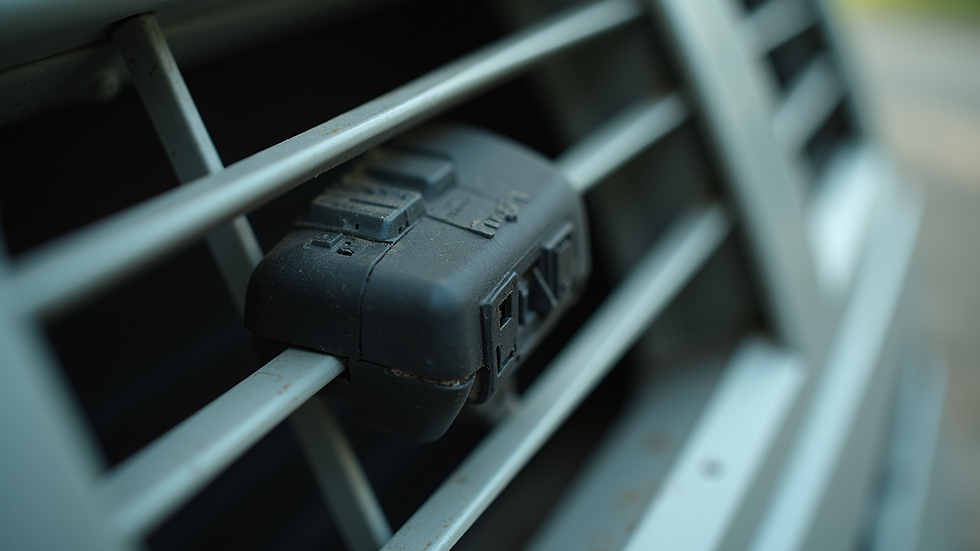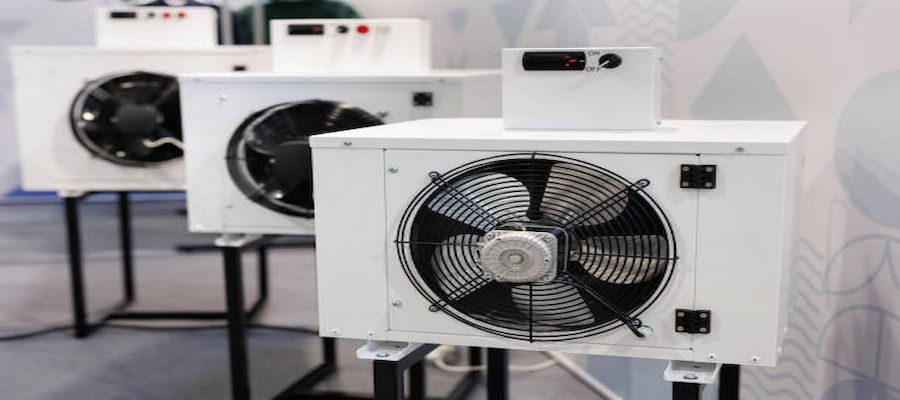Ultimate Guide: Choosing the Best AC Spare Parts
- Aman Salmani
- Jul 4
- 4 min read
When the summer heat hits, a well-functioning air conditioning unit becomes essential. However, like any machine, air conditioners can break down. When that happens, knowing how to choose the best AC spare parts can save you time, money, and frustration. This guide will walk you through everything you need to know about selecting the right spare parts for your AC unit.
Understanding Your AC System
Before diving into spare parts, it is crucial to understand how your air conditioning system works. Most AC units consist of several key components:
Compressor: This is the heart of your AC. It compresses refrigerant and circulates it through the system.
Condenser: This part releases heat from the refrigerant, allowing it to cool down.
Evaporator: This component absorbs heat from the indoor air, cooling it down before it is circulated back into your home.
Expansion Valve: This regulates the flow of refrigerant into the evaporator.
Knowing these components will help you identify which parts may need replacement.
Common AC Spare Parts
Here are some common spare parts you might need for your AC unit:
1. Filters
Air filters are essential for maintaining air quality and efficiency. Dirty filters can restrict airflow and cause your AC to work harder, leading to higher energy bills.
Types of Filters:
- Fiberglass filters
- Pleated filters
- HEPA filters
Make sure to check your filter type and replace it regularly, ideally every 1-3 months.
2. Compressor
If your AC is not cooling effectively, the compressor might be the issue. Replacing a compressor can be costly, so ensure it is the actual problem before proceeding.
Signs of a Failing Compressor:
- Unusual noises
- Inconsistent cooling
- High energy bills
3. Capacitors
Capacitors help start the compressor and fan motors. If your AC unit is not starting, a faulty capacitor could be the culprit.
Symptoms of a Bad Capacitor:
- Humming noise without operation
- AC unit shuts off unexpectedly
4. Thermostats
A malfunctioning thermostat can lead to incorrect temperature readings and inefficient cooling.
Types of Thermostats:
- Manual
- Programmable
- Smart thermostats
Choose a thermostat that fits your lifestyle and needs.
5. Refrigerant
Refrigerant is the lifeblood of your AC system. If your unit is low on refrigerant, it may not cool effectively.
Signs of Low Refrigerant:
- Ice buildup on the evaporator coils
- Warm air blowing from vents
Always hire a professional to handle refrigerant issues, as it requires special tools and knowledge.
How to Choose the Right Spare Parts
Choosing the right spare parts can be overwhelming. Here are some tips to simplify the process:
1. Know Your AC Model
Always check your AC unit's model number before purchasing spare parts. This information is usually found on a label on the unit itself.
2. Quality Over Price
While it may be tempting to go for the cheapest option, investing in high-quality parts can save you money in the long run. Look for reputable brands and read reviews.
3. Compatibility
Ensure that the spare parts you choose are compatible with your specific AC model. Using incompatible parts can lead to further issues.
4. Warranty and Return Policy
Check if the spare parts come with a warranty. A good warranty can provide peace of mind. Also, understand the return policy in case the part does not fit or work as expected.
5. Consult a Professional
If you are unsure about which parts to buy, consult a professional technician. They can provide valuable insights and help you make informed decisions.
Maintenance Tips for Your AC
Once you have the right spare parts, maintaining your AC unit is crucial for its longevity. Here are some maintenance tips:
1. Regular Cleaning
Keep the exterior and interior of your AC unit clean. Dust and debris can hinder performance.
2. Check Filters Monthly
As mentioned earlier, check and replace filters regularly. This simple task can significantly improve efficiency.
3. Schedule Professional Inspections
Consider scheduling annual inspections with a professional technician. They can identify potential issues before they become major problems.
4. Monitor Energy Bills
Keep an eye on your energy bills. A sudden spike may indicate that your AC is not functioning efficiently.
5. Use a Programmable Thermostat
A programmable thermostat can help you save energy by adjusting the temperature when you are not home.
Troubleshooting Common AC Issues
Sometimes, your AC may show signs of trouble. Here are some common issues and how to troubleshoot them:
1. AC Not Cooling
If your AC is running but not cooling, check the following:
Is the thermostat set correctly?
Are the filters clean?
Is the compressor running?
2. Strange Noises
Unusual sounds can indicate a problem. Check for loose parts or debris in the unit.
3. Water Leaks
If you notice water pooling around your AC, it could be a clogged drain line or a refrigerant leak.
4. Frequent Cycling
If your AC turns on and off frequently, it may be due to a dirty filter or an oversized unit.
When to Replace Your AC Unit
Sometimes, repairs may not be worth the cost. Here are signs that it may be time to replace your AC unit:
The unit is over 10-15 years old.
Frequent repairs are needed.
Energy bills are consistently high.
Investing in a new unit can provide better efficiency and comfort.
Final Thoughts
Choosing the best AC spare parts is essential for keeping your air conditioning unit running smoothly. By understanding your system, knowing common spare parts, and following maintenance tips, you can ensure your AC remains efficient and effective.
Remember, when in doubt, consult a professional. They can guide you in making the best choices for your specific needs.

With the right knowledge and tools, you can tackle any AC issue that comes your way. Stay cool and comfortable all summer long!



Comments